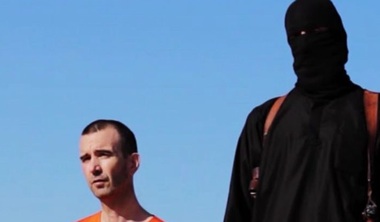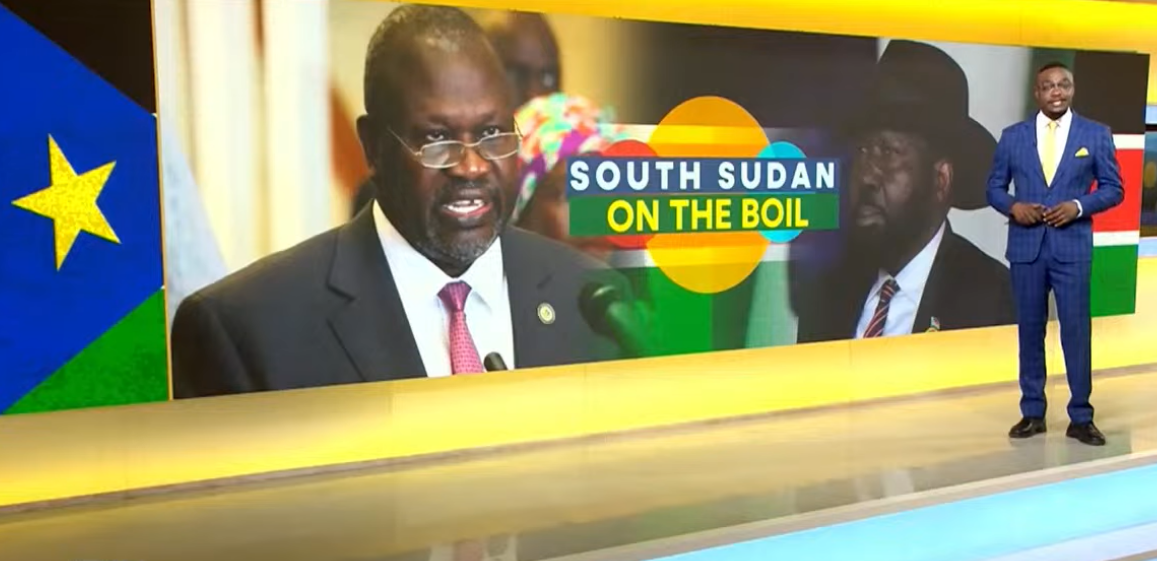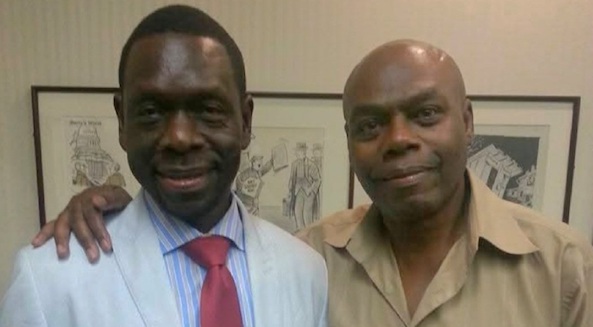Image said to be of David Haines, U.K. hostage, before beheading by ISIS
[Black Star News Editorial]
The ISIS crisis can’t be resolved in isolation from the other ongoing conflicts in Iraq, Syria and Turkey.
There is also the bigger Sunni Islam versus Shiite Islam contest which overshadows and fuels these multiple wars.
Understandably, the current global discussion, war strategy and corporate media coverage, are focused on ISIS. The Sunni Muslim organization’s territorial gains in Iraq and in northern and north eastern Syria were startling.
The organization burst into the global media attention as it continued posting on social media photographs and videos of its summary executions of hundreds of captured Syrian and Iraqi government troops. It gained even more attention when it started beheading captured Western hostages.
Yet, ISIS is one part of a bigger crisis that requires a broad solution; which is the critical need to end the multiple conflicts in the region.
ISIS did not start the Syrian conflict. In fact, ISIS was born as a result of the war there when it split from al-Qaeda, which group it claims isn’t sufficiently radical.
In Syria there are several armed organizations trying to topple the government of Bashar Assad. Many have been committing gruesome atrocities for years, including beheading of captured combatants, and summary executions of captives who are blind-folded and have their hands tied. The evidence of the brutal deeds, dating back years, can be found on images and video posted on YouTube.
There was scant corporate media coverage because anyone opposing Assad was seen as acceptable. While there was also heavy coverage of allegations that Assad’s forces used chemical weapons, credible allegations by a senior UN official, with evidence, that anti-Assad forces used sarin were ignored and never followed up on.
There were many inconvenient truths in the Syrian conflict; similar to the unpleasant news concealed that rebels from Misurata committed war crimes with the ethnic-cleansing against Black Libyans in Terwaga during the NATO-backed war.
Many anti-Assad forces have one thing in common; toppling the Syrian regime, which is backed by Iran and Hezbollah allies. These include: ISIS; al-Qaeda; al-Nusra; the so-called Free Syria Army; and other fighting forces. They have spent much of the time fighting against each other. These are Sunni groups that oppose Assad’s Alawites, who are aligned with Shiite Muslims.
The best evidence that the problem is more than ISIS was provided when Iraq’s national army evaporated when attacked. Recently-deposed prime minister, Nouri al-Maliki, spent his entire regime engaged in war against Sunnis, purging them from government and the military, including competent commanders. So when ISIS seized territory in Iraq, it was initially welcomed by Sunnis.
Maliki also fought with the Kurds.
His departure won’t immediately resolve historical enmity between Sunnis and Shiites in Iraq.
A Wall Street Journal report “On Iraq’s Front Lines, Army Struggles to Slow Militants,” on its Weekend Oct. 25- Oct. 26 edition, captures the perils faced by Iraq’s Shite-dominated government. According to a former general under the Sadam Hussein regime, now a Sunni commander of a militia fighting ISIS, after 15 minutes of one battle in Dhuluiya against the Islamic State, he watched “Iraqi soldiers break rank and flee in terror.”
This city is only 45 miles from Baghdad, the Iraqi capital.
Meanwhile, Turkey considered a “key ally” in fighting Islamic State, has its own agenda. Turkey recently stood by as ISIS decimated Kurdish forces in the Syrian city of Kobani across its border. Turkish politicians abhor the Kurds more than ISIS. This is because Turkey has a huge Kurdish population which has for decades been fighting for autonomy.
Ironically, the Kurdish forces, in Syria and in Iraq where they are known as Peshmerga, have been the most capable fighting forces. In Kobani, according to a Wall Street Journal report, one-third of the city’s defenders are female combatants.
Part of any long-term solution must include an independent Kurdish state.
Turkey wants the U.S. to declare removal of the Assad regime is an objective. Turkey believes that it’s possible to fight against ISIS, while at the same time escalating conflict against the Assad regime, without any adverse consequences. This is preposterous logic.
It’s tantamount to a doctor wanting to cure cancer on the throat while hoping that the one on the same victim’s toe will go away by itself.
In fact the strategy must seek political solutions to the multiple conflicts even as ISIS’s gains are checked or reversed militarily.
All the inter-related wars must be addressed: the one between the Sunnis and Shiites, regionally, and in Iraq and in Syria; the one between the Shiites and Kurds in Iraq; and, the one between the Turks and the Kurds.
Any approach that ignores these realities on the ground is delusional.







